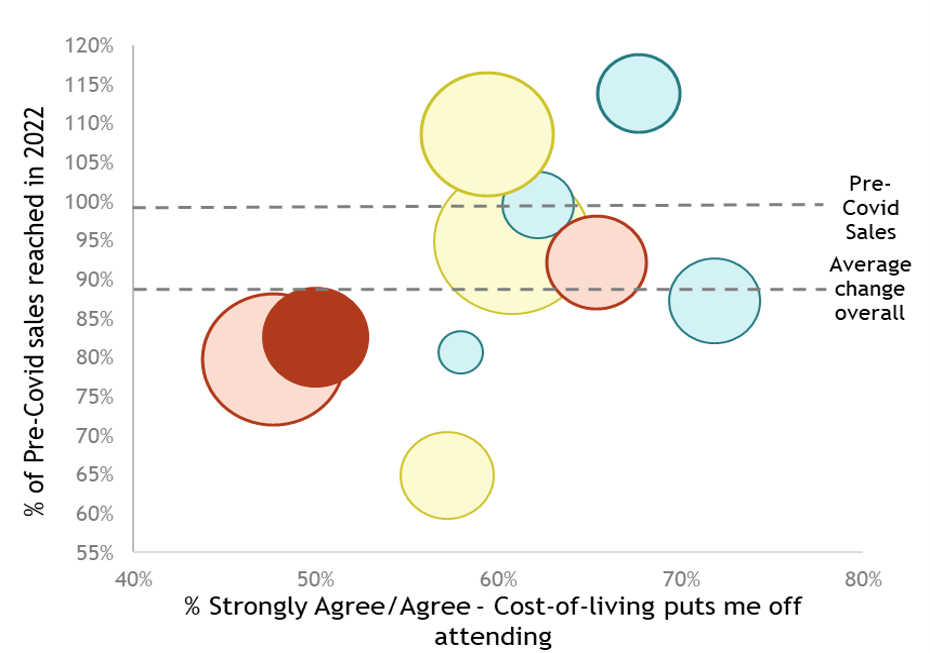Back to Metroculturals overview
Metroculturals Attitudes
In this section
Priorities
Culture is more than entertainment for this segment; for many it forms an important part of their identity, challenging and stimulating them intellectually and influencing the way they see the world.
- Over 50% of Metroculturals consider themselves to be 'arty' or 'creative', far more than in other segments, and their highly developed experience and knowledge mean that they can be very discerning.
- As knowledgeable members of culturally aware and active networks, they expect their refined tastes to be recognised and their needs to be addressed accordingly.
- This group is highly socially active and their arts and culture activity is part of this, with many attending on a weekly basis across a wide range of artforms and venues.
- The environment is important to all audiences and participants, but Metroculturals are particularly confident in a broad range of cultural settings, both indoors and out.
Spending
This is a group with disposable income that they choose to spend within the cultural sector.
- They respond very well to appeals to spend money in the site-specific, high-quality cafes and shops of cultural institutions, while over a fifth have bought works of art for themselves.
- They are more likely to pay premium prices for a must-see experience.
- Priority booking for in-demand events is a more important membership benefit than discounting.
- Frequent shopping online allows them to book efficiently, and price is less important than time for busy, always-on Metroculturals, who are also willing to pay to see ticketed online productions.
- Flexibility and convenience – late booking, ticket exchange, mobile ticketing – are therefore valued and generally considered to be worth a premium.
Philanthropy
Thanks in part to a large disposable income, Metroculturals are the arts' most reliable patrons, as well as keen donors to humanitarian causes.
- With 14% donating to culture-based causes, Metroculturals are the most supportive of the arts, with nearly one in five givers making donations over £100 (second only to Commuterland Culturebuffs in their level of gift).
- They are the main source of major donors to the arts, with 3% giving over £1,000 annually.
- Donations to museums are above average at 18%, with 10% of these giving more than £100; putting them at the top of the museum-giving league, although their propensity to give to heritage is much more in line with the population average.
- They also give to a range of charities but with a clear emphasis on disaster relief, overseas development, and social injustice, and appealing to their humanitarian values is key.
- They are also the most likely group to give money to people on the street, but least likely to give to animal charities.
Cost-of-living concerns

Despite not having quite returned to pre-Covid-19 attendance levels, Metroculturals are among the least likely to be put off by cost-of-living concerns, so audiences can be expected to continue to engage through this most recent crisis.
This group is amongst the least likely to say they are worried about cost of living factors, with only 15-20% strongly agreeing. This is across changes in inflation, energy costs and interest rates, but this latter worry has the largest impact on this group.
